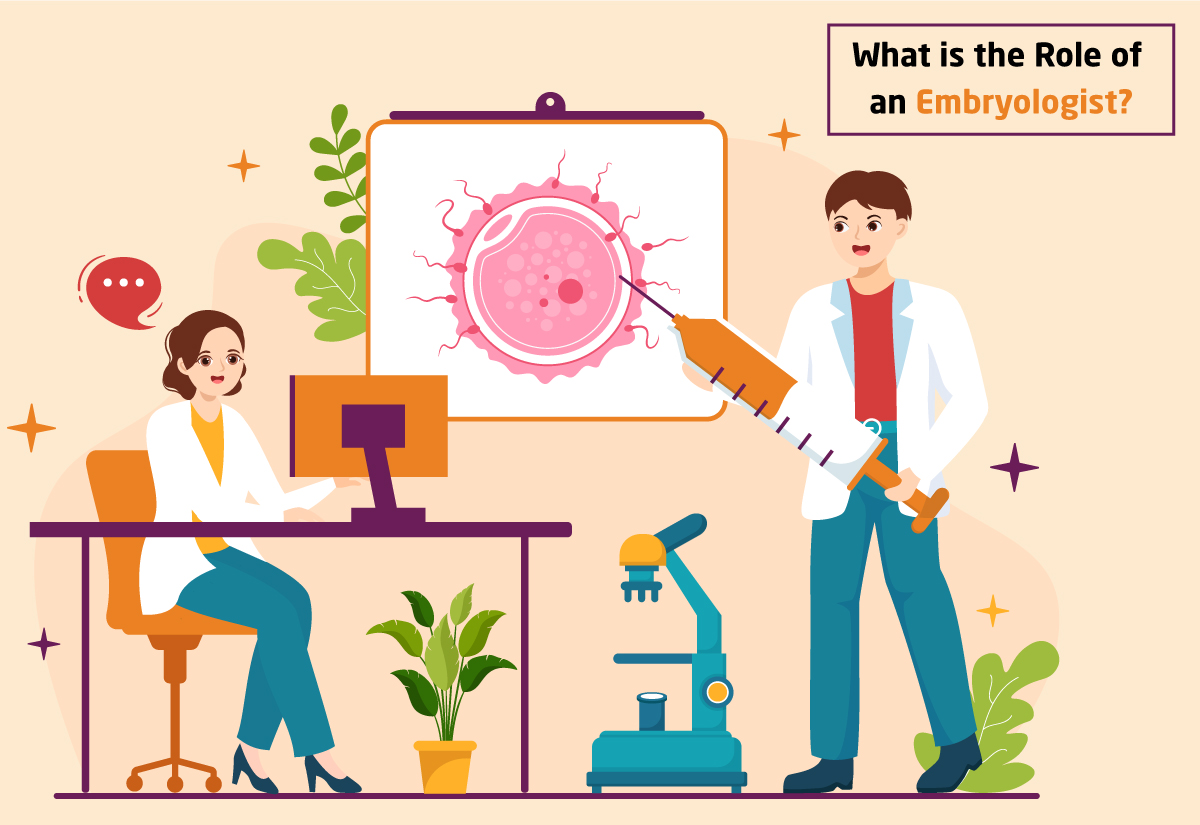Introduction
Role of an Embryologist play a significant role in the process of conception and in the life of assisted reproductive technologies . Moreover, they are vital to the concept of reproductive medicine – a realm where many people and families’ hopes and aspirations rest. These specialists are vital to the process of creation and nurturance of life, even though they often remain out of the spotlight. In this article, I consider how important their role is, what skills this profession requires, and what impact it has on a person’s passage to parenthood.
Read more When Should You Take a Pregnancy Test After Missing Your Period?
Understanding the Role of an Embryologist:
Role of an Embryologist are professionals with much training who study embryos and how they grow. They mostly work in the lab and work with gametes; that is an egg and sperm and help the process of fertilization happen. They do this using methods like IVF, ICSI, and embryo culture .
- Expertise in Laboratory Techniques: Concerning it, Embryologists have much know-how on the various lab techniques needed for fertilization and further the development of embryos. With this knowledge, Chick and Stubblefield argued that they know how to work with delicate biological materials, handle them with care and precision and know what conditions are perfect for fertilization and development of the embryo.
- Fertilization Procedures: Fertilization Procedures The Embryologist’s job is twofold. One of the major tasks of the embryologist is to make fertilization a reality in the lab. Whether it be consequent to routine IVF, or through ICSI, embryologists are pivotal in the sperm and egg coming together. They check in closely to ensure that it all goes according to plan.
- Embryo Culture and Assessment: Following fertilization, the embryologist oversees the growth and development of embryos within the lab. In the lab, they make a secure environment for fertilized embryos to grow, corresponding to the conditions inside the female reproductive tract . Through their alert eyes and careful testing, they recognize which embryos are healthiest, most feasible of implanting, and thereby resulting in pregnancy.
- Cryopreservation Techniques: Embryologists are well aware of cryopreservation techniques, which involve freezing embryos to keep them safe for future use. This feature allows individuals and couples to preserve their fertility and embryos for future attempts at conceiving, providing them with hope and choices as they navigate their journey to becoming parents.
- Quality Control and Regulatory Compliance: Indeed, it is of great importance to adhere to the rules set by regulators in the field of embryology, as well as ensure the highest quality standard. Embryologists also contribute to the safety and accuracy of assisted reproductive procedures ensuring that they keep detailed records, carefully watch over lab equipment, and follow each step to the letter.
Impact on Assisted Reproductive Technology (ART):
Nevertheless, their contributions go much farther than the walls of a laboratory. They have an immense and lasting impact on the field of assisted reproductive technology and people’s families.
- Fulfilling Dreams of Parenthood: Those who search for patterns in human work with themselves can find hope in embryologists . With the help of assisted reproductive technologies such as in vitro fertilization , embryo transfer and cryopreservation , embryologists make it possible for people to realize their dream of a much-children .
- Advancing Scientific Research: In addition to seeing patients, embryologists help move scientific knowledge forward and come up with new ideas in the field of reproductive medicine . Research projects and the embryologists’ knowledge of how embryos develop help us understand why some people have fertility problems, help ART work better and help treat patients better .
- Supporting Ethical Practices: Embryologists have an ethics of unchanging duty – to be honest and take care of their patients as much as possible . They deal with the tricky moral issues that come up with reproductive technologies and make sure that patients’ rights, their informed consent, and ethical standards are followed at all times.
Conclusion:
Even though reproductive medicine is always changing, role of an Embryologist are still very important. Embryologists are a huge help to people and couples who want to have children because they have the specialized knowledge, technical skills, and unwavering dedication to their work. Their work not only brings happiness and satisfaction to many families, but it also makes it possible for assisted reproductive technology to keep getting better, giving hope to future generations who want to start their own families.

